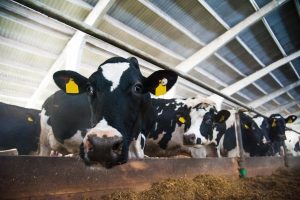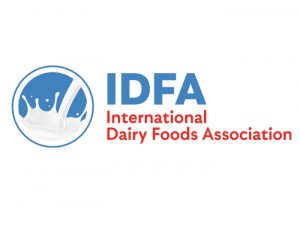
The study, which will be conducted in a research wing of the Penn State Dairy Barns, is important, according to Kevin Harvatine, professor of nutritional physiology in the College of Agricultural Sciences, because milk is such an important source of nutrients in Americans’ diets. Milk sales also represent more than 10 percent of U.S. farm cash receipts.
“Feeds high in fat, such as oilseeds or fat supplements, have increased in price and are expensive to feed to dairy cows,” he said. “Cows need some dietary fat to make milk fat, but optimal feeding levels are not established. We believe there is an optimal feeding level for dietary fat that will maximize milk fat by providing some of the fatty acids needed to make milk fat without decreasing synthesis of fatty acids in the udder from other nutrients.”
The objectives of the research are to quantify adaptations in the transfer of fatty acids in the diet of dairy cows to milk fat; to determine the dynamics of fatty acids synthesized in cows’ mammary tissue to milk fat; and to characterize enzyme activity in cows’ fat tissue and its regulation by the secretion of hormones known to impact lactation.
The research will provide fundamental insight into the supply of fatty acids to the mammary gland for milk fat synthesis and identification of key interacting nutritional and cow physiological factors that impact milk-fat yield, Harvatine explained.
“This information will allow establishment of recommended feeding levels for dietary fat and identification of limitations in fat synthesis due to nutrient levels in the cows’ diet,” he said.
“That knowledge eventually will guide dairy producers in attaining optimal fat yield in milk they produce in the most efficient and cost-effective manner.”























